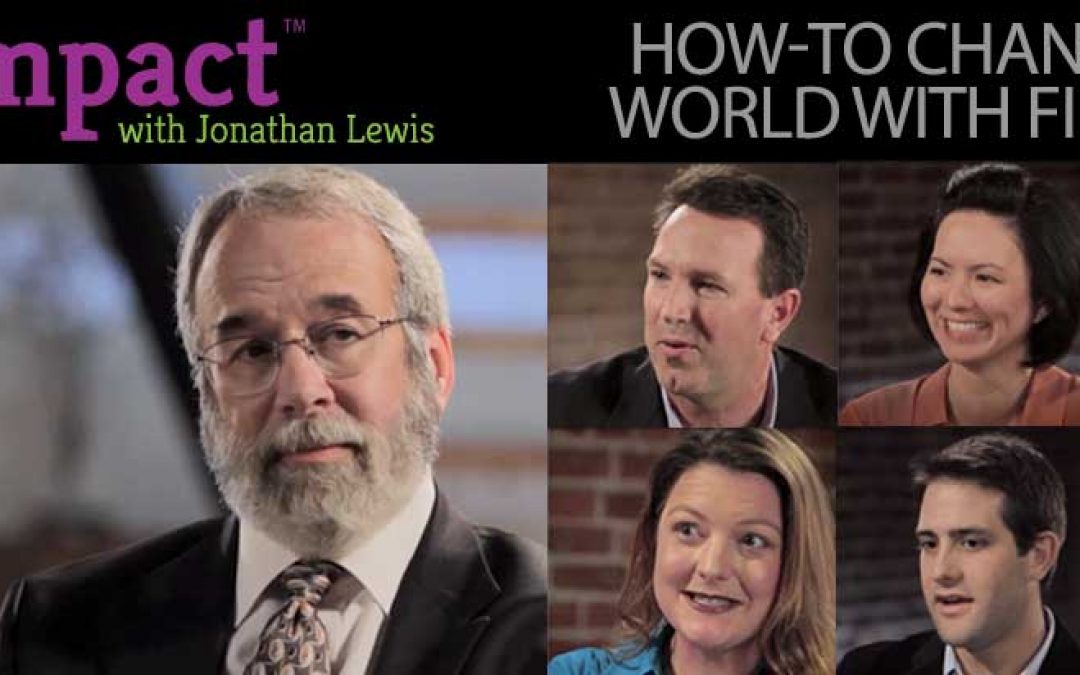Money is the power to support the social and economic justice work you want done, but can’t do yourself.
Whether a cash donation or a social impact investment, money validates, endorses and shouts tangibly and loudly: I believe in your mission! I believe in your leadership! I believe in getting this done!
With every dollar received, social entrepreneurs accept a fiduciary trust to manage and spend funds wisely, efficiently and transparently. In How-To Change The World With Finances, seasoned social entrepreneurs talk about finance as a non-negotiable skill.
Jessamyn Lau, Program Leader at the Peery Foundation, moved her social change career path from art student to teaching in China to getting an MBA because “everyone needs to know” finances. “Don’t be afraid of the numbers. Social enterprise finance is for everyone, period, end of story,” concludes Saul Garlick, Founder/CEO of Think Impact.
“The language of finance is really powerful. It tells us how the world works,” adds Jacob Harold, Chief Executive Officer of Guidestar. “When combined with the community organizing skill set, training in business is great for figuring out how to make change.”
Balanced budgets and cash flow management are the unsexy backbone of every social movement, every social enterprise. A social entrepreneur must be able to explain the numbers with conviction and confidence to “greed” and “common good” investors alike.
The base of the economic pyramid is now recognized as an enticing market opportunity. “I used to think that MBAs are evil. Now I realize business is an avenue for creating the world we want,” notes social entrepreneur Keely Stevenson, Chief Executive Officer of Bamboo Finance USA.
In all my social enterprises, I want the chief financial officer to remember, and remind us, that not everything worth doing has a price tag. We are in the economic justice business, not in the business of figuring out ways to make the poor more profitable chattel. The 18th Century Irish poet and author Jonathan Swift (of Gulliver’s Travels fame) cautioned, “A wise man should have money in his head, not in his heart.”
Before getting his MBA, Guidestar CEO Harold says, “I spent my days beating up business people for doing bad things to the environment, but I didn’t have any human relationships with people in the business world. To be real and authentic, I needed [to cultivate] friends in the business world.”
In a very real sense, he is talking about immersing himself in another culture in order to understand it well enough to lead it to a better place. Is there a higher order form of social entrepreneurship? I doubt it.
LEARN MORE
Follow Jonathan Lewis on Twitter: @SocentClinic
Special thanks to Cafe Impact.
Follow us, http://Twitter.com/NobleProfit
Like us, http://Facebook.com/NobleProfit
Register at http://NobleProfit.com to gain valuable insights in related topics.
Noble Profit is brought to you by http://CreativeEntity.Org
Creative Entity Productions http://Creative-Entity.com
Created by Cafe Impact User


 Noble Profit™ is an authentic source for discovering innovation, trends and investment in clean tech, and sustainable business.
Noble Profit™ is an authentic source for discovering innovation, trends and investment in clean tech, and sustainable business.